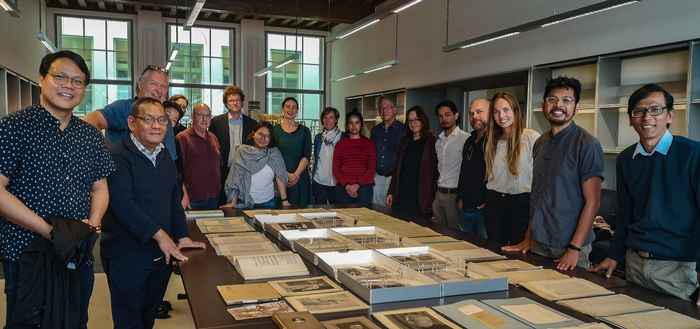European grant for disclosure of colonial sound collections from Southeast Asia
14 January 2021
Apart from coordinating the transnational project, Barbara Titus and meLê yamomo of the Amsterdam School for Cultural Analysis (ASCA) will take care of the Dutch side of the project and make the Jaap Kunst Sound Collection available online. This collection lay at the foundation of ethnomusicology and contains music recordings made by the Dutch ethnomusicologist Jaap Kunst between 1919 and 1934 in the former Dutch East Indies. Titus: ‘Many unique sound recordings from Southeast Asia, like the ones in this collection, are stored in Europe and are not accessible to the communities the material was collected from. This project aims to change that. Sound and music are important sources to historians, among others: they give a voice to those who are often not represented in written sources.’ Both Titus and yamomo have been working on this subject for years already, each in their own way – yamomo as researcher of Southeast Asian sound archives in his VENI project Sonic Entanglements and Titus as curator of the Jaap Kunst Sound Collection.

Accessibility of heritage organisations
Until recently, the interests of the communities from which the material was gathered were hardly considered in heritage curation. Lately, however, this has started to change. As part of their project, the researchers will be undertaking a pilot study in which they will map to what extent European heritage organisations are accessible to these communities. Titus: ‘We are going to invite stakeholders from Southeast Asia to visit the collections in the Netherlands, France and the United Kingdom and have them inform us of the issues they encounter while accessing them. These issues might consist of physical barriers, but also, for instance, of a language barrier.’ Based on this pilot study, the researchers hope to make recommendations to museums and archives that will help them make their heritage collections more easily accessible.
It is moreover important that people from the communities concerned are given a voice in the public and academic debate about heritage curation. The researchers aim to stimulate this by facilitating the publication of articles of Southeast Asian stakeholders (scholars, artists, next of kin) in leading journals. Furthermore, the researchers plan on organising outreach projects, including workshops and plays, in order to boost the debate about colonial heritage in Europe. To achieve this, the researchers will collaborate with a large number of partners in archives, museums, media and festivals in the Philippines, Laos, Indonesia, the Netherlands, France, the United Kingdom and Germany.
Stepping beyond former colonial frameworks
In this project, our UvA researchers will be collaborating with French and British researchers. Ethnomusicologists from the Centre Asie du Sud-Est (CASE-CNRS/EHESS) and the Laboratoire Perception Représentations Image Son Musique (PRISM-CNRS) will be migrating a multimedia study of the ritual music of the Toraja people in Sulawesi (Indonesia) to an Open Access digital platform. Researchers from SOAS University of London will collaborate with SOAS Radio, the BBC Archive Trust and the British Library to digitise a large number of radio broadcasts from the late colonial and postcolonial eras in Southeast Asia.
The transnational setup makes the project unique, says Titus. ‘European research into Southeast Asia still predominantly takes place within the former colonial frameworks: the Dutch research Indonesia, the French research Laos, etcetera. Because of this, many interesting exchanges and connections remain unnoticed. We wish to change this by working together and looking beyond these borders, by also studying the interaction between the various regions.’
Partners: ASCA – Universiteit van Amsterdam, CASE-CNRS/EHESS/INALCO – Parijs, PRISM-CNRS/Aix-Marseille Université, SOAS – University of London, Laon-Laon Asian Music Archives Network, University of the Philippines Center for Ethnomusicology (UPCE), Indonesian Oral Traditions Association (ATL), Citra Research Center – Yogyakarta Indonesië, Institute of Resource Governance and Social Change (IRGSC) – Kupang, Indonesië, Traditional Arts & Ethnology Centre (TAEC) Laos, Archives of Traditional Music in Laos (ATML)/National Library of Laos, British Library, BBC Archive Trust, SOAS Radio, Beeld en Geluid, Association Française d’Archives Sonores (AFAS), Decolonial Frequencies Festival Berlijn (DFF).